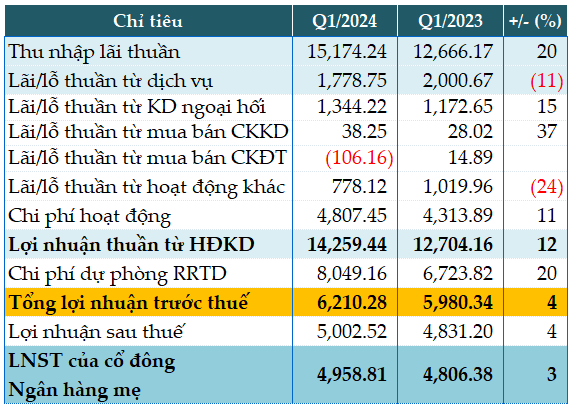
Organizations participating in the Test Mechanism include credit institutions and Fintech companies certified by the State Bank to participate in the Testing Mechanism.
|
The State Bank is seeking public opinions on the draft Decree on the Controlled Testing Mechanism in the banking sector.
The State Bank of Vietnam (SBV) said that in the past, the trend of developing financial technology (Fintech) activities has been clearly shown through the participation of technology startups and non-bank organizations with technology strengths in banking and financial activities (Fintech companies) in the form of developing solutions to support banking operations without directly providing services to end users or independently supplying new solutions.
The rapid development and expansion of Fintech have posed challenges and difficulties for financial and monetary authorities in terms of management and supervision, such as the risks of money laundering and terrorist financing (AML/CFT), ensuring cyber security, protecting user data, protecting consumer and investor rights, etc.
These Fintech activities and areas of operation mentioned above are mostly not comprehensively regulated or have specific legal provisions to govern them, thus potentially posing risks and negative consequences in certain aspects such as fair competition, financial stability, protection of consumer rights, and cyber security.
Many countries around the world have proactively approached this issue by establishing a Controlled Testing Mechanism for Fintech activities in response to the rise of Fintech as independent entities (such as Fintech startups) or as technology solutions being applied and deployed within the service provision and solutions of traditional financial institutions. The Testing Mechanism is one of the most preferred tools and policy approaches that many countries apply to accelerate innovation, enhance competitiveness, and improve efficiency in the banking and financial sector by allowing the testing of Fintech solutions through real transactions within a controlled environment, limited in scope, scale, and testing period. Fintech solutions participating in the Testing Mechanism will be subject to regular and continuous supervision by banking and financial management agencies to limit the lowest level of risk and subsequent consequences.
In the context of the above trends and background, Vietnam needs to promptly establish a management framework in the form of a Decree regulating the testing mechanism for Fintech activities to promote innovation, restrict unhealthy competition, prevent illegal acts in the name of Fintech, and protect the interests of service users.
At the same time, the operation of this framework provides practical grounds for relevant state management agencies to amend, supplement, and perfect existing regulations and enact management regulations in a way that facilitates and adapts to Fintech activities in the banking sector in the near future.
Main policies of the draft Decree
In the process of drafting the Decree, 06 policies have been specified and elaborated by SBV into detailed regulations in the draft Decree, as follows:
Policy 1: Conditions for registering to participate in the Test Mechanism have been specified into provisions on the regulatory scope (Article 1), applicable entities (Article 2), and conditions and criteria for participating in the Test Mechanism (Article 9, Article 10).
Policy 2: Implementation of the test has been specified into provisions on Fintech solutions in the banking sector that can be tested under the Testing Mechanism (Article 6), testing period and scope (Article 7).
Policy 3: Risk control has been specified into provisions on the testing period and scope (Article 7); Supervision and inspection of the testing process (Article 13); Reporting and information provision regime (Article 14); Responsibilities of organizations participating in the Testing Mechanism (Article 20); Responsibilities of implementation organizations (Article 21).
Policy 4: Assuring legal rights and interests of businesses, consumers, and related subjects have been specified into provisions on risk control, responsibilities for handling all customer’s requests for review and complaints during the prescribed Testing Mechanism period, compensation responsibilities of organizations participating in the Testing Mechanism, ensuring user information security, intellectual property, etc. (Article 15, Article 20).
Policy 5: Post-testing processing (test completion) has been specified into provisions on methods of handling when the test is completed, including suspension of testing, extension of testing, certification of test completion, procedures for completing the test (Article 16, Article 17, Article 18, and Article 19).
Policy 6: Transitional processing has been specified into the provision on the transitional clause (Article 23), which stipulates the code of conduct for organizations that do not participate in the Testing Mechanism but still operate, ensuring fairness and the interests of businesses without affecting the freedom to conduct business of these businesses.
|
According to the draft, the controlled testing mechanism in the banking sector is a testing environment for the application of technology and the deployment of new products, services, and business models in the banking sector with limitations in scope, space, and implementation time. Organizations participating in the Testing Mechanism must meet the conditions and criteria for participation and be subject to supervision by competent state agencies (hereinafter referred to as the Testing Mechanism). Organizations participating in the Testing Mechanism include credit institutions and Fintech companies certified by the State Bank to participate in the Testing Mechanism. |









































